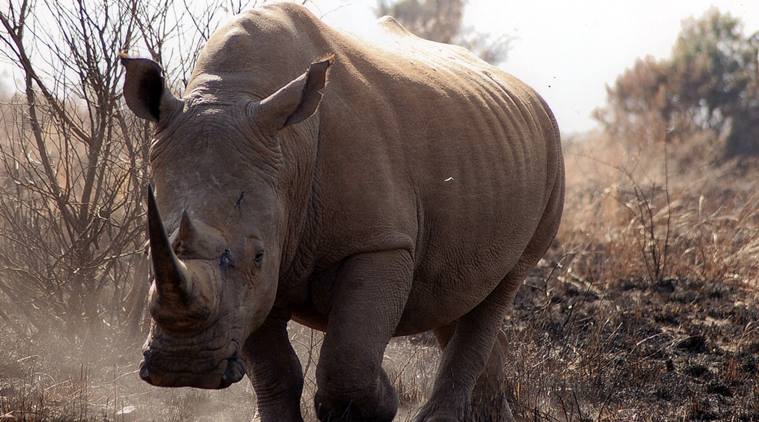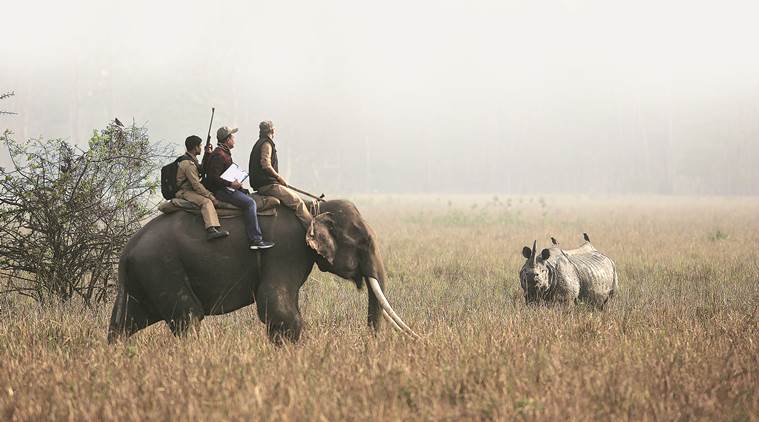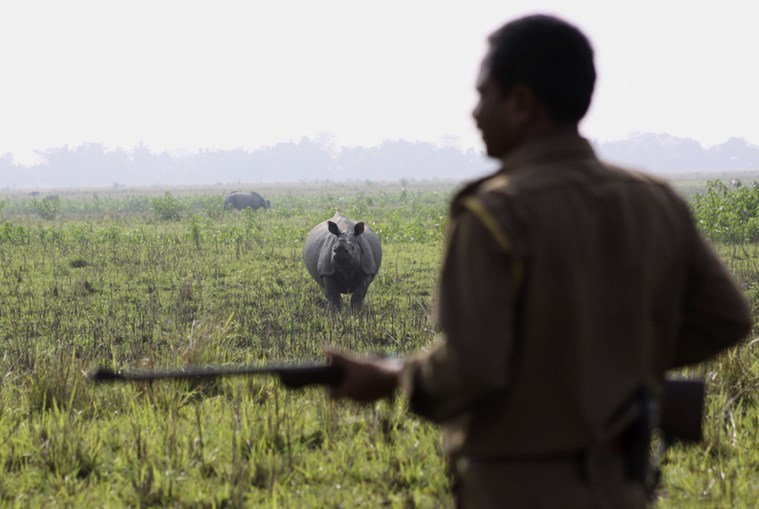 Chinese demand for ivory is also blamed as a driver behind the slaughter of African elephants, despite Beijing banning all trade in ivory starting from this year.
Chinese demand for ivory is also blamed as a driver behind the slaughter of African elephants, despite Beijing banning all trade in ivory starting from this year.
China released new rules last Monday to allow trade of rhino horns and tiger parts for certain medical and cultural purposes, watering down its 25-year-old ban on the same. No reason was given for lifting the ban which was implemented in 1993 amid a global push to protect the fast-disappearing endangered species.
The new rules restrict the sale, use, import and export of such products to “special circumstances”, such as medical and scientific research, educational use and for “cultural exchanges”.
 Tiger bone and rhino horn are used in traditional Chinese medicine, despite a lack of evidence of their effectiveness in treating illness and the effect on wild populations.
Tiger bone and rhino horn are used in traditional Chinese medicine, despite a lack of evidence of their effectiveness in treating illness and the effect on wild populations.
China’s ban on tiger bones, rhino horns
Beijing banned the trade of tiger bones and rhino horns, both prized in traditional Chinese medicine, 25 years ago as part of global efforts to halt declining animal stocks. But illegal poaching has continued, driven by demand in an increasingly affluent country.
Commercial tiger farms in China are legal, and although using tiger bones in medicine was banned, tiger parts from these farms often ended up being made into tonics or other medicines, animal rights groups said.
The ban came a day after the World Wildlife Fund (WWF) tweeted that about 60 per cent of the global wild animal population has been wiped out by humans. WWF said the move to overturn the ban would have “devastating consequences globally” by allowing poachers and smugglers to hide behind legalised trade.
With only around 3,900 left in the wild, every tiger counts. But China’s latest move to lift the ban on tiger bone trade threatens to put a dark cloud over the world’s wild 🐯
— WWF 🐼 (@WWF) October 29, 2018
“With wild tiger and rhino populations at such low levels and facing numerous threats, legalised trade in their parts is simply too great a gamble for China to take,” Margaret Kinnaird, WWF wildlife practice leader, was quoted as saying by the Washington-based organisation.
Some famous celebrities have also commented on the ban:
Former England skipper Kevin Pietersen slammed China for lifting the ban on tiger and rhino parts. Pietersen even urged South African president Cyril Ramaphosa to take a stand on this issue. He went on bashing the Chinese government saying that rhino horn has zero medicinal value.
I’m fuming! 🤬 pic.twitter.com/2Fd7EadbWy
— Kevin Pietersen🦏 (@KP24) October 30, 2018
Entrepreneur Richard Branson spoke out against rhino horn trade. Branson also said that this move will reignite the slaughter of wild animals and the gains made in addressing illegal wild trade will be rolled back with this move.
Hope Chinese government will not go ahead with plans to legalise use of rhino & tiger parts in “medicine”. This move will only serve to reignite the slaughter of magnificent animals & roll back any gains made in the global fight against wildlife poaching https://t.co/saodagLU8G
— Richard Branson (@richardbranson) October 30, 2018
Tiger bone and rhino horn are used in traditional Chinese medicine, despite a lack of evidence of their effectiveness in treating illness. Chinese demand for ivory is also blamed as a driver behind the slaughter of African elephants, despite Beijing banning all trade in ivory starting from this year.
 According to the latest count, Kaziranga has 2,413 one-horned rhinos according to official data.
According to the latest count, Kaziranga has 2,413 one-horned rhinos according to official data.
Present scenario
Studies put the global population of wild rhinos at less than 30,000, while poaching is reducing that number drastically each year.
There are only an estimated 3,890 tigers in the wild across the world, according to a report presented during the Third Asia Ministerial Conference on Tiger Conservation in 2016. Thousands of tigers are also believed to have been bred on Chinese farms where conditions for the animals are often criticised as dire.
 Environmental Investigation Agency, a British nonprofit, called the overturning of the ban a “brazen and regressive move which drastically undermines international efforts for tiger and rhino conservation.”
Environmental Investigation Agency, a British nonprofit, called the overturning of the ban a “brazen and regressive move which drastically undermines international efforts for tiger and rhino conservation.”
How it affects India
The new move will certainly have a detrimental effect on Assam’s one-horned rhino as it might result in an increase in poaching activities in the state. According to multiple conservationists, this can encourage rhino poachers and trafficker of horns. Since India shares its border with China, this can cause a spurt in poaching activities as these products are legally acceptable in China now.
ALSO READ | Poaching may increase in Assam, say conservationists
According to the latest count, Kaziranga has 2,413 one-horned rhinos according to official data. Last year five rhinos were killed by poachers in Kaziranga National Park while in 2016, 18 rhinos were killed by poachers and their horns taken away.